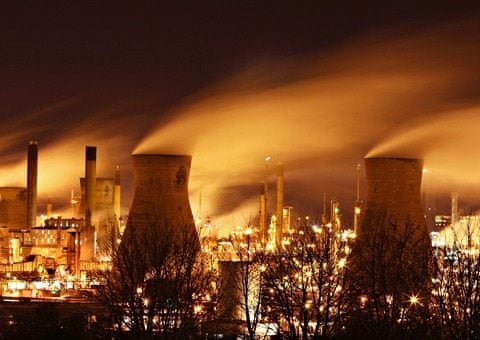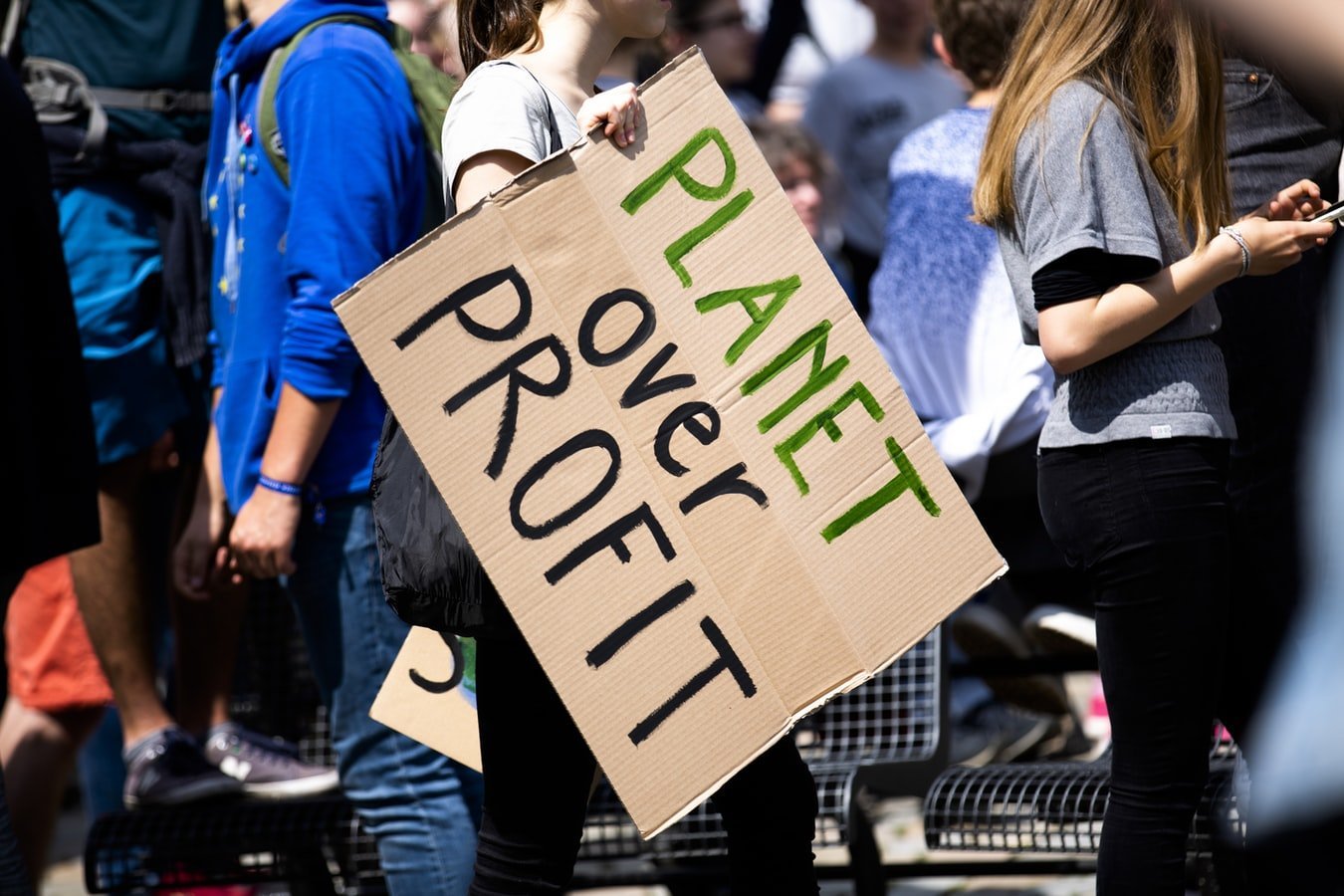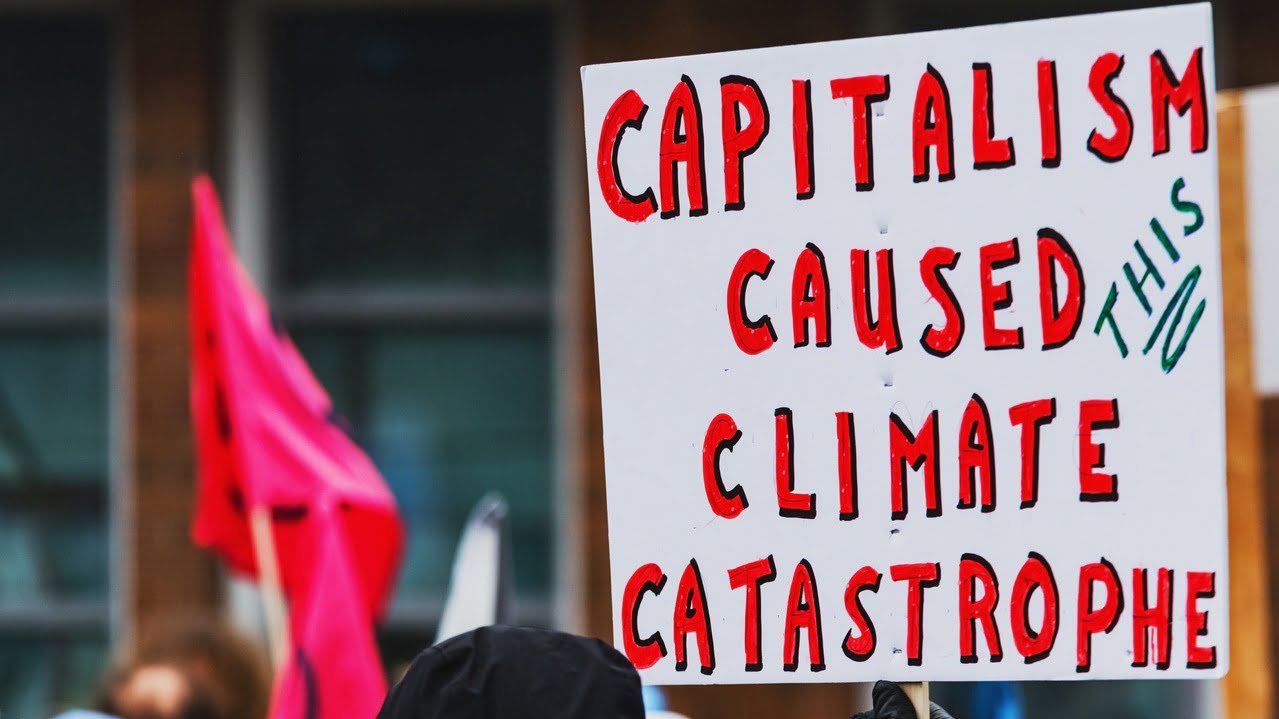In her book, This Changes Everything: Capitalism vs.The Climate, Naomi Klein fiercely argues about the declining climate and the denial and neglect surrounding climate change by the capitalist society. She holds the aristocrats and the corporate elites responsible for not paying heed to the damage that the growing technological advances and ecological reforms are causing that contribute to drastic climate change. In this article, I examine the argumentative reasoning presented by the author with examples from the book and its relevance to the practical realm of modern society.
About the author
Known for her political analyses, advocacy for ecofeminism, organised labour, left-wing politics, and critique of corporate globalisation, fascism, ecofascism, and capitalism, Naomi A. Klein is a Canadian writer, social activist, and filmmaker who was born on May 8, 1970. She is a co-director at the Centre for Climate Justice at the University of British Columbia since 2021 as an Associate Professor and Professor of Climate Justice.

Klein’s 1999 anti-globalisation book No Logo helped her gain initial recognition abroad. She furthered her profile with The Take (2004), a documentary film about Argentina’s occupied factories, written by her and directed by her husband Avi Lewis, and The Shock Doctrine (2007), a critical examination of the development of neoliberal economics, which cemented her position as a well-known activist on the global stage.
About the book
Naomi Klein’s fourth book, This Changes Everything: Capitalism vs. The Climate, was released in September 2014 and quickly became a New York Times and international bestseller. It was dubbed ‘The most significant and divisive environmental book since Silent Spring‘ by the New York Times book review.
The book is an exemplary expression of the firm views of the author, who urges us to broaden our horizons beyond the mindset of gaining mass monetary benefit and re-evaluate our goals towards global, social, and political reforms. The author emphasises the need to restructure our ecological reforms and obligate white-collar personnel to partake in devising methodological steps towards a sustainable environment.
The author’s argument around neoliberalism
Neoliberalism is a policy model that stems from the amalgamation of political and economic reforms and promotes the idea of a free market and trade between countries. The author condemns the principle of globalisation which is responsible for mega-mergers, urbanisation, and industrialisation, all of which have deteriorated the natural habitat. The trade agreements and acquisitions are hostile to the environment and labour regulation, moulding the entirety of the structure into a money-making catalyst for their gain.

Corporate giants, to quote Naomi Klein, choose ‘to treat the atmosphere as a waste dump,‘ to promote their selfish interests. They also escape repercussions since they are not under the power of the democratic authorities. In the first part of the book, comprising substantial three sections, the book sheds light on how the financial crisis and global depression have sidetracked the agenda of the environmental crisis and the aftermath of the degradation of nature due to globalisation expansion.
According to Klein, neoliberalism was once a fledgling counterrevolution. Through an epic example of bad timing, the growth of the anti-regulatory World Trade Organisation, the fetish of privatising and globalising everything, and the Reagan-Thatcher revolution all occurred at the same time just as the public had put its trust in climate science.
However, counterrevolutions can be stopped. The majority of Klein’s book is devoted to encouraging indications that this is happening. The movement for climate justice is growing internationally. Environmental demonstrations have increased in China at a rate of 29% annually since the mid-1990s. Local governments are advancing where national leaders have stumbled.
The movement for climate justice is growing internationally. Environmental demonstrations have increased in China at a rate of 29% annually since the mid-1990s. Local governments are advancing where national leaders have stumbled.
As Naomi Klein rightly points out that ‘It is always easier to deny reality than allow our worldview to be shattered‘, she promptly points out the psychology of denial when it comes to climate change.
Capitalism vs. the climate
Klein disintegrates the boggle of cap and trade. She outrageously exposes the deemed schemes regarding fracked gas as a link to renewable energy claiming that it is time to hold accountable the international summits that produce hot air of the Sirocco calibre and the nonbinding agreements that obligate us all to increase our emissions. The book points out the counterfeited fallacy of the win-win partnerships between the Big Green Sustainability promoters and the Corporate Mirages. Their projected reality of reducing carbon emissions and environmental sustainability contradicts the truth of being.

Klein believes that the big polluters will triumph in democracies controlled by lobbyists, fundraisers, and plutocrats while the rest of the world will watch the earth perish in varying degrees of complicity and inactivity. Any attempt to address the climate crisis would be useless, according to Klein, unless it is recognised as a component of a much bigger conflict of worldviews. When she writes, ‘Our economic system and our planetary system are now at war,‘ we are reminded that in order to achieve revolutionary environmental metamorphosis, we need extraordinary and grandiose measures to execute the notion.
The measures to achieve environmental sustainability
Klein is an optimistic and passionate writer who advocates the fallacy of Environmental Sustainability. The second section of the book talks about the technical fixes that can assist in ending the tradeoff between environmental sustainability and ecological development. In many ways, the second portion of the book—which deals with what Klein refers to as ‘magical thinking‘—is its heart. Here, she discusses scientific solutions to combat climate change, such as plans for geoengineering.
One of the more ambitious plans is to use helium balloons that spray sulphate to dull the sun’s rays to simulate the cooling effect of major volcanic eruptions on the atmosphere. Such technical mega-fixes carry clear hazards. We simply do not know enough about the Earth system to be able to safely re-engineer it, as any climate scientist would confirm. But as Klein points out, abrupt climate change can only be solved with such grandiose schemes.

The measures suggested sound optimistic in nature and impact, but at their core, they involve huge aspects of monetary and labour-intensive investments, which may lead to an economic slowdown. Though the book does not lack the relevance of scientific research and findings about political authorities and lobbyists sweeping the environmental crisis under the carpet and its subsequent consequences, the idea of bringing about a change gradually and steadily in terms of sustainability is right in its stance, but the resources and cost involved in establishing a strong foundation to avert the devastation are still enormous.
The tradeoff between sustainable development and economic growth
The tandem duality of both forces results in the growth of mankind. As we progress towards economic excellence with technological innovations, we are regressing on our path towards sustainable development. With the ongoing environmental crisis, it is essential to understand that we need measures that can build a common ground between economic growth and ecological development. The tradeoff between the dual forces can only be balanced by mutual agreement between both forces.
This Changes Everything is an excellent book that every ecologist and environmentalist should read. It intricately lays down the problem framework of the environmental crisis and suggests ideal methods to combine the dual forces into a common foundation.
This Changes Everything is an excellent book that every ecologist and environmentalist should read. It intricately lays down the problem framework of the environmental crisis and suggests ideal methods to combine the dual forces into a common foundation. Though certain measures suggested only solve the problem in idealistic terms, they are difficult to achieve in their entirety. Nonetheless, the book by Naomi Klein enlightens us on challenging our conventional mindset and befriending a holistic way of thinking that makes our environment more sustainable.







Comments:
Comments are closed.